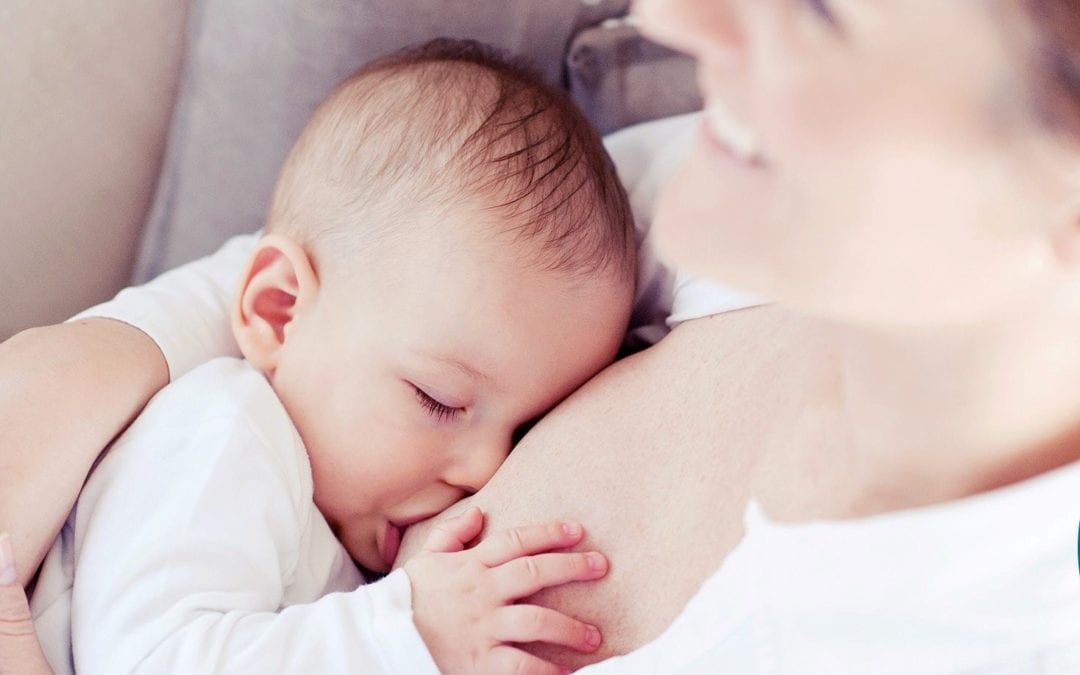UP CLOSE WITH BABIES: TAKING SHORT NAPS CLOSE TO MOM
When babies sleep close to their moms, they tend to sleep more often, but in between these short naps, they often wake up. Why would that be? It’s because they spend 50% of their total sleep in 24 hours in an REM mode (rapid eye movement, meaning light sleep).
LET’S TAKE A CLOSER LOOK AND DO SOME MATH!
This light sleeping mode makes up for about the first 20 minutes of their sleep – during which they are very likely to awaken. This is the 20-minute timeslot that most parents refer to as “lulling/rocking the baby to sleep” feeling that this is not real sleep. Parents tend to think that only long, deep sleep matters for babies. As infants enjoy being rocked and are likely to be making sucking and smacking sounds during this 20 minutes they cannot possibly sleep properly.
After this initial period spent in REM sleep babies sometimes wake up and stay awake for a while. Other times, they move into a deeper sleep lasting for about another 20 to 40 minutes. When this first sleep cycle (20 minutes dozing and about half an hour deeper sleep) is over, they are likely to awaken. Or they may pass back to sleep and start another similar cycle, you would never know.
Only very seldom do babies sleep for hours on end. This is valid for daytime and night time as well. They have irregular sleep patterns during the day and the night; they require frequent breastfeeding and do not sleep through the night.
Actually this is what happens when babies are close to their moms, which is the best possible thing for any baby.
THIS MAY PROVE VERY TIRING FOR MOST FAMILIES, SO WHAT BENEFITS COULD IT STILL HAVE?
For babies, it simply means life! This is what helps them grow! Being in close proximity to their moms and waking up frequently means regular breastfeeding. Regular breastfeeding means a satisfactory amount of mother’s milk, and breast have been designed to be regularly emptied in order to produce a sufficient amount of milk.
Frequent breastfeeding
- provides a regular supply of milk,
- helps maintaining babies’ blood glucose levels and
- they will, therefore, grow steadily.
Frequent nursing sessions transfer milk efficiently to babies’ incredibly small bellies, and as breastmilk is quickly digested, babies need frequent feeds to help them grow.
THIS IS WHAT MAKES BABIES FEEL SECURE!
Why is it so? It is because babies kept in skin-to-skin contact, compared to those put further away from caregiver
- demonstrate normal and regular blood oxygen levels,
- have a steady heart rate,
- and does not have episodes of apnea (or at least not as long apnea episodes as those without skin-to-skin).
Well, the thing is, your body is a top-quality incubator equipped with a respiratory monitor and many other fine-tuned instruments! And this is not some poetic imagery: incubators are technological solutions to attempt to replace caregivers’ proximity. Nevertheless, not even the perfect incubator can ever compete with your own body.
SO THEN WHICH BABIES ARE BETTER OFF: THOSE WHO SLEEP OR THOSE WHO DON’T? WHAT’S WRONG WITH LONG SLEEP PATTERNS?
Let’s make it clear: if your baby is close to you and has long sleep patterns, then you can relax: everything is just fine. If she grows steadily, again, you don’t need to worry. But don’t forget: babies tend to differ considerably.
The question is not how your baby sleeps, it is how you think about your baby’s sleep pattern! If your goal is to produce long sleeps for your baby, you will feel frustrated every time she “fails to achieve” this end.
Frequent, long and deep sleeps, away from the caregiver, would never have felt safe for any baby in the course of history – it is simply not what their body had got accustomed to. Our babies are so reliant on us that they need to remind us of their presence all the time in order to preserve their physiological indicators and maintain the adequate level of available breastmilk (and to sustain their growth and hence guarantee their survival).
Long, deep sleep is pure luxury because
- while sleeping, infants get no milk supply
- they do not stimulate their mothers’ breasts to produce milk
- and while away from their caregiver, no one helps them regulate their physiological indicators.
For babies, this is not an optimal, or a natural state of being; this is an energy-saving technique: while sleeping long and deep, they need less dietary intake. If you see that your baby tends to have longer sleep patterns, you may notice that she is impatient and extinguished when she wakes, and she wants to eat right away. Babies who spend more time in close proximity to their mothers do not need to push their boundaries: they get a faster response to their needs. This means that when we wake to our baby’s first signal and feed her before she gets ravenous, we do not make her addicted to some sinful snacking or getting her mother running to her, in fact, quite the opposite: we work towards our baby’s development, and for a more regular, more coherent sleep pattern.
THE NEW WAY OF THINKING: BREASTSLEEPING
As we have demonstrated above, sleeping and breastfeeding are so closely interconnected that that two pioneering infant sleep experts, James McKenna and Lee Gettler, coined a new term ‘BREASTSLEEPING’, claiming it makes no sense to discuss sleeping and breastfeeding separately, as for sleeping babies need breastfeeding.
All this, however, can only be achieved, if you have your baby close to you while sleeping. This is how we get the three most important, and virtually inseparable factors:
- cosleeping and having your baby to fall asleep rigth next to you –as the handiest option for keeping your baby close during the night,
- breastfeeding on demand and its alternative, bottlefeeding on demand combined with pacifier use,
- and babywearing – as the handiest option for keeping your baby close during the day.
AND WHAT HAPPENS TO BABIES WHO ARE NOT, OR ONLY PARTIALLY BREASTFEEDING?
The good news is: bottlefeeding can also be done on demand just like breastfeeding providing the same complex care that accomodates sleep and nutritional needs at each stage of development.
What really matters is your way of thinking and the efforts you make; the rest is only technical. Remember: a regularly available stream of milk and sucking are what best help babies go to sleep, and if you combine bottles with pacifiers, you will get the same result.

